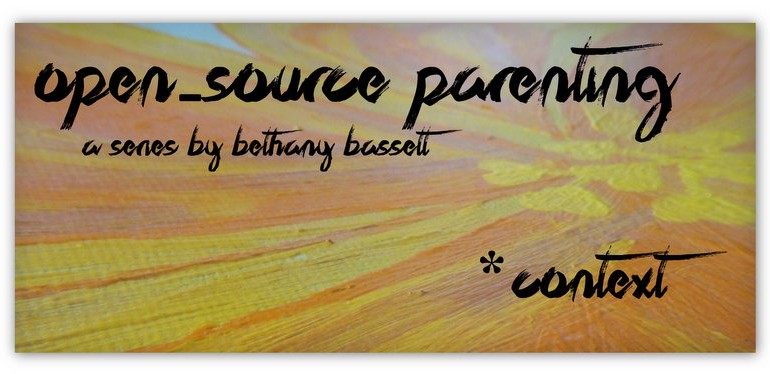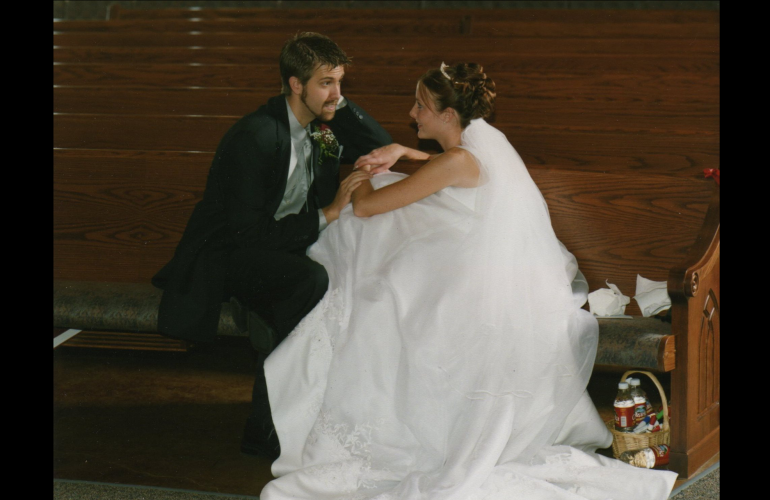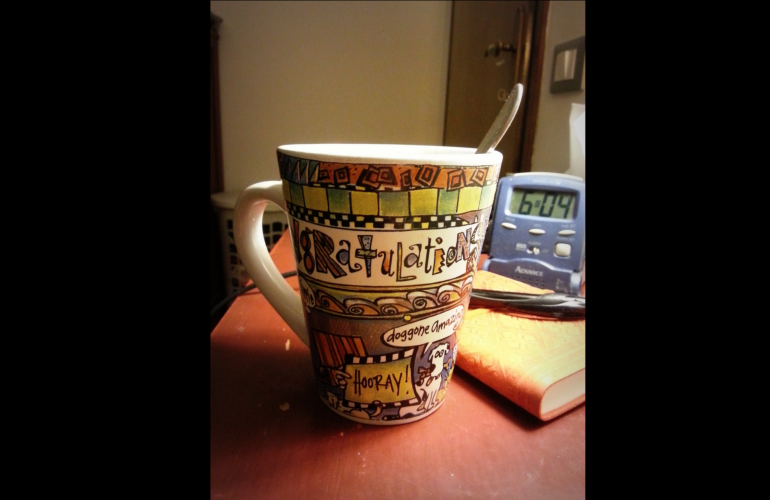We talk a lot about parenting here on ye olde blog. I love exchanging strategies to help us rock (or possibly just survive?) these early years, and I’ve frequently drawn on my own childhood for examples of philosophies to avoid. A friend’s recent comment, though, reminded me that there is a whole aspect of the parenting discussion that I haven’t yet touched on here:
“I’d love it if our adult children, and those of your readers, could share what they think their parents did right.”
What they did right. In a blink, his comment brought back a little document that I typed up one morning three years ago, a list of ways that my parents demonstrated love and made my childhood special. I didn’t have an agenda for writing it; in fact, it’s been gathering dust in the recesses of my hard drive ever since. All I remember about that morning is that I felt compelled to seek out and celebrate the positive in my life.
It’s the perfect time to resurrect that practice, don’t you think, here in the first bright exhalation of spring? I’d like to share highlights from my What they did right list today and then open up the comments for you to share some of your parents’ wins as well. We could all use the encouragement that no matter how we imperfectly we navigate this parenting gig, our efforts to love and champion our kids will not be forgotten. Ready?
—
My parents cultivated my love of reading. My mom is the one who taught me how to read, and both parents enthusiastically nurtured my resulting love affair with words—filling our home wall to wall with books, taking me to the library to borrow crates full, and letting me while away summer afternoons in the nook of a tree with Nancy Drew or Homer (the bard, not the Simpson) for company. We bonded over books as a family as well. Our weeknight ritual for years was to gather in the living room where we kids would work on crafty projects while our parents took turns reading aloud—a tradition that Dan and I carry on with our girls today. The tapestry of stories woven through my childhood still hangs on the walls of my imagination, lending its rich backdrop to everything I create, an heirloom of identity.
My parents let my brothers and I run… and skateboard and climb trees and play street hockey and roam the neighborhood on bikes and explore the woods and build our own stunt equipment and ride wagons toboggan-style down hills and generally have a fantastic time trying to kill ourselves in the great outdoors. This is an aspect of life that I realize our girls are missing out on living in an urban landscape and an era in which parents don’t let kids out of their sight until they’re twenty-five or so (and even then, not without a helmet). I loved having the freedom to explore both our geographical surroundings and the risk-taking possibilities of my small body. It infused life with the tang of adventure and, well, was just plain fun. I’m sedentary by nature, a total couch potato at soul, and these outdoor escapades are a large reason that I’ve spent my adulthood trotting the globe rather than moldering into the furniture.
My parents invested themselves personally into my education. Beyond teaching me to read, my mom also provided my first introduction to math, history, science, music. She taught my fingers how to fly across piano keys and my arms how to sink elbow-deep into bread dough. She and my dad together taught me how to keep up a home, everything from applying wallpaper to cleaning the ceiling fans, and they made sure I had opportunities to pursue many different extracurricular interests—dance, sewing, creative writing, even politics for a while. They shuttled me to my first Shakespeare class when I was still in elementary school and, despite our unconventional schooling approach, made sure I had the solid academic base I’d need for college. Their involvement was as big a factor in my education as the coursework itself was.
My parents let me do things on my own when I felt ready. I can’t imagine putting Natalie on a plane by herself one short year from now, but I took the first flight of my life all by myself for my tenth birthday. Layover and everything. By eleven, I was going out in the evening for babysitting jobs. At fourteen, I traveled to a foreign country with a group of people I didn’t know—an experience so life-expanding that I kept it as a summer tradition until the year my first daughter was born. I landed a real office job at fifteen and left home for school at sixteen, and though many parents would have balked at giving me so much independence so young, mine stood with me. They let me write my own definition of age-appropriate milestones rather than making me wait for others’, and to that I owe every joy of my adult life.
—
Your turn! Here in the comments (or over on Facebook), tell me something your parents especially rocked at, and we can all start our weekends basking in each other’s good memories. No helmets required.










